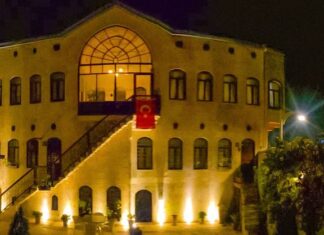9. Emancipated children by the civil law have no right to the inheritance of their father; being no longer under the power of their parent, they are not his sui heredes, nor are they called to inherit by any other right under the law of the Twelve Tables.
But the praetor, obeying natural equity, grants them the possession of goods called unde liberi, as if they had been under the power of their father at the time of his death, and this, whether they stand alone, or whether there are also others, who are sui heredes. Thus, when there are two children, one thus emancipated, and the other under power at his father’s death, the latter, by the civil law, is alone the heir, and alone the suus heres: but, as the emancipated son, by the indulgence of the praetor, is admitted to his share, the suus heres becomes heir only of a part.
10. But those who, after emancipation, have given themselves in adoption, are not admitted as children to the possession of the effects of their natural father, that is if, at the time of his death, they are still in their adoptive family.
But, if, in the lifetime of their natural father, they have been emancipated by their adoptive father, they are then admitted to receive the goods of their natural father exactly as if they had been emancipated by him, and had never entered into the adoptive family. Accordingly, with regard to their adoptive father, they become from that moment strangers to him.
Equally considered as strangers
But if they are emancipated by their adoptive father after the death of their natural father, they are equally considered as strangers to the adoptive father; and yet do not gain the position of children with regard to the inheritance of their natural father. This has been so laid down because it was unreasonable that it should be in the power of an adopter to determine to whom the inheritance of a natural father should belong, whether to his children, or to the agnati.
11. The rights of adoptive children are therefore less than those of natural children, who, even after emancipation, retain the rank of children by the indulgence of the praetor, although they lose it by the civil law. But adopted children, when emancipated, lose the rank of children by the civil law, and are not aided by the praetor.
And the distinction between the two cases is very proper, for the civil law cannot destroy natural rights; and children cannot cease to be sons and daughters, grandsons and granddaughters, because they cease to be sui heredes. But adopted children, when emancipated, become instantly strangers; for the rights and title of son or daughter, which they have only obtained by adoption, may be destroyed by another ceremony of the civil law, that, namely, of emancipation.







